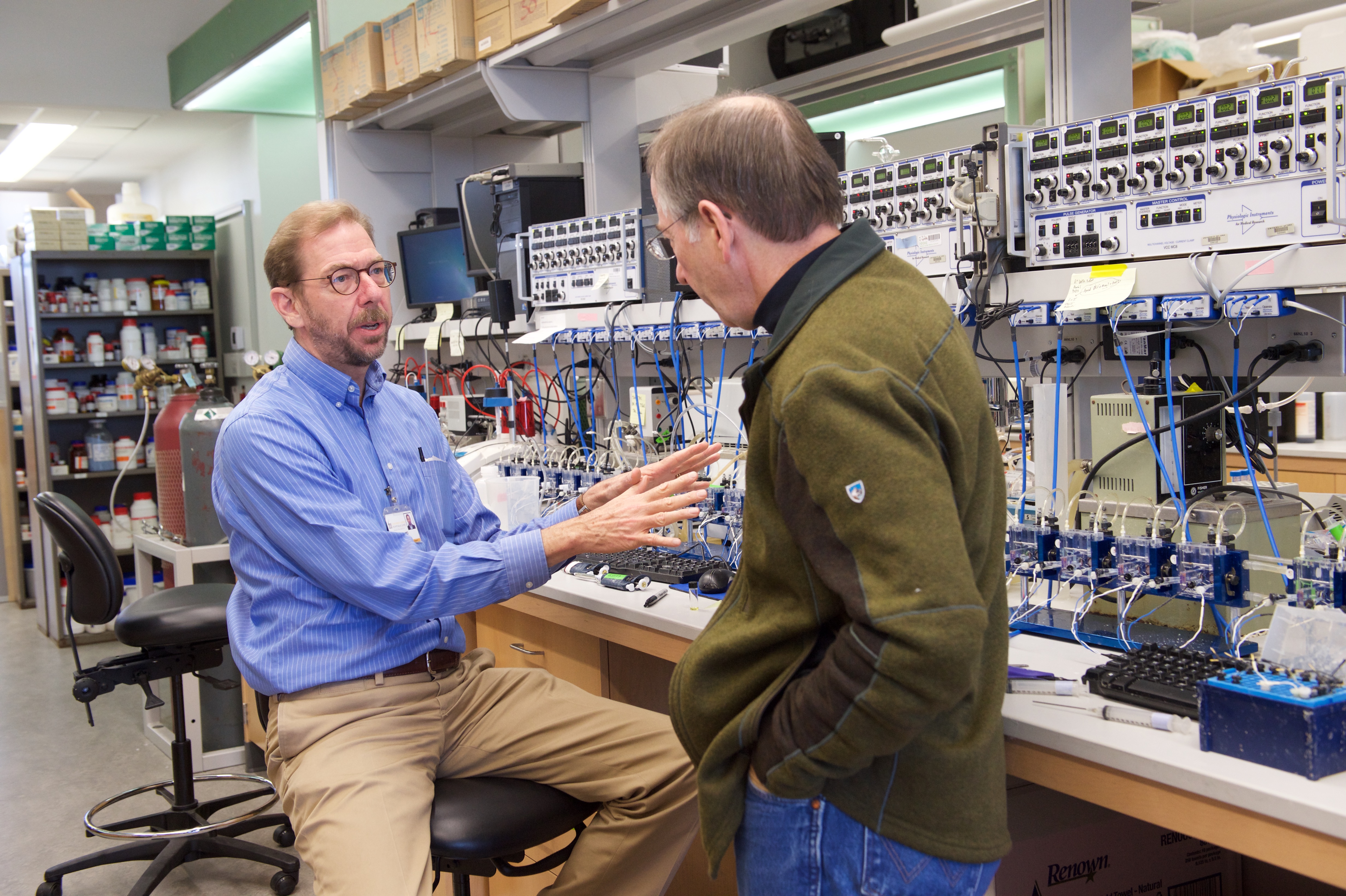Gene editing efficiently corrects cystic fibrosis mutation in lung cells

Continuing a long tradition of innovation to advance treatment for cystic fibrosis (CF), University of Iowa researchers led by Paul McCray Jr., MD, were part of a team that developed a new gene editing approach to correct the most common CF-causing mutation.
In collaboration with researchers at the Broad Institute of MIT and Harvard University led by David Liu, PhD, McCray and his colleagues helped to optimize a gene-editing approach known as prime editing. The new method allowed the researchers to precisely and durably correct the CF mutation in human lung cells and restore cell function to levels similar to that achieved with the best existing drug therapies. The findings were published recently in Nature Biomedical Engineering.
Cystic fibrosis is one of the most common genetic disorders causing thick mucus build-up in the lungs and other parts of the body, breathing problems, and infection. A three-drug cocktail known as Trikafta, developed in 2019, has greatly improved patients’ quality of life. In addition to its cost of about $300,000 per year, some patients do not respond to the drug, and others cannot tolerate side effects.
“These new drugs have dramatically improved outcomes for most patients with CF,” says McCray, UI professor of pediatrics-pulmonary medicine, and the Roy J. Carver Chair in Pulmonary Research. “But if we can develop safe, effective gene editing therapies, we could potentially create one-time, lasting treatments for CF with fewer side effects. This work takes us one step closer to that goal.”
Gene repair with prime editing
Cystic fibrosis is caused by mutations in the CFTR gene that disrupt ion channels in the cell membrane that allow chloride to leave cells. The most common mutation, which occurs in 85% of all patients with CF, is called CFTR F508del and involves a three-base-pair (CTT) deletion that causes the ion channel protein to misfold and degrade.
Previous attempts to correct this specific CFTR mutation with gene editing have not been efficient enough to produce a therapeutic benefit or have used approaches that generate double-stranded breaks in DNA, which can lead to unwanted changes in the target gene and other locations in the genome.
The new method developed by Liu’s and McCray’s teams is based on a technique called prime editing, which is a more flexible and controlled kind of gene editing that does not require double-stranded breaks. Prime editing was developed in 2019 by Liu who is the director of the Merkin Institute of Transformative Technologies in Healthcare at MIT’s Broad Institute, as well as a professor at Harvard University.
In the new study, the research team combined six different enhancements to optimize this technology to more efficiently correct the CFTR mutation.
In combination, these refinements corrected about 60% of the CTT deletions in human lung cells and about 25% in cells taken directly from the lungs of patient with CF and grown in a dish. This marks a striking improvement over previous methods that corrected less than 1% of the mutation in cells. The new approach also generated 3.5 times fewer unwanted insertions and deletions per edit than gene editing previous methods. Importantly, the corrections restored ion channel function to over 50% of wild-type levels, which is similar to the effect produced by Trikafta in primary airway cells.
The next step to translate this approach into a potential therapy for patients will be to develop safe, efficient ways to package and deliver the new prime editing machinery to the airways in mice and ultimately humans. The researchers are hopeful that recent developments such as lipid nanoparticles that reach the lungs in mice may help expedite translation of this approach.
“We plan to investigate several emerging viral and non-viral delivery technologies that may allow us to effectively deliver these gene editing tools to the cells affected by CF,” McCray says.
In addition to McCray, the UI research team included Lei Lei, Soumba Traore, Katarina Kulhankova, and Philip H. Karp.
The research was funded in part by grants from the National Institutes of Health. McCray is also supported by the Roy J. Carver Charitable Trust.